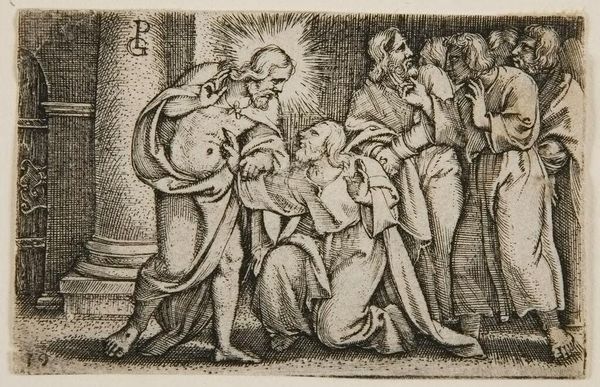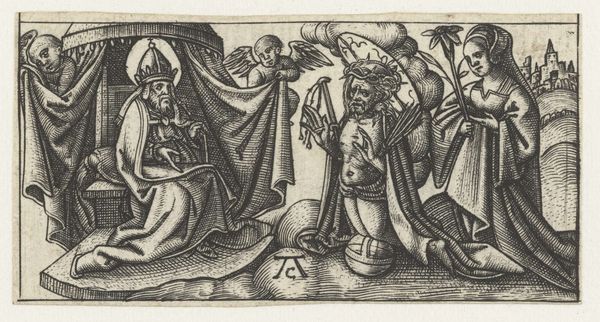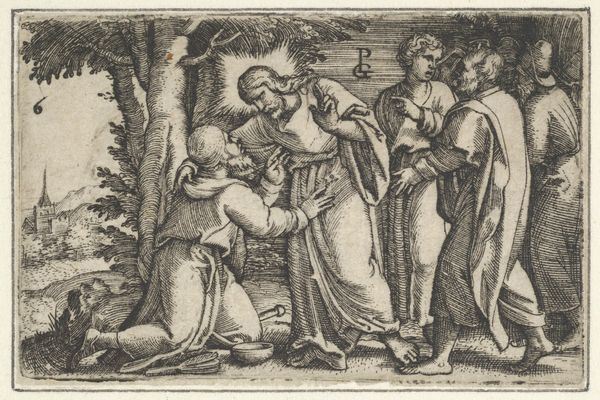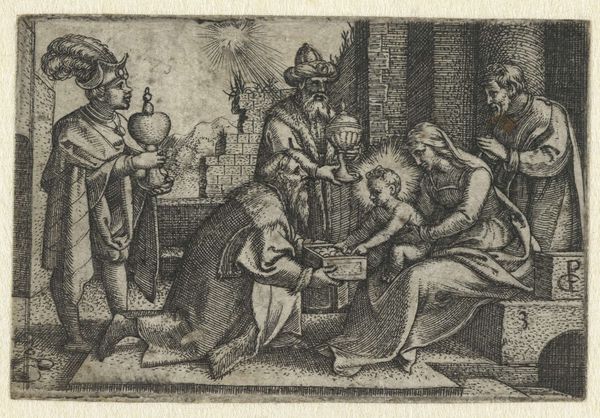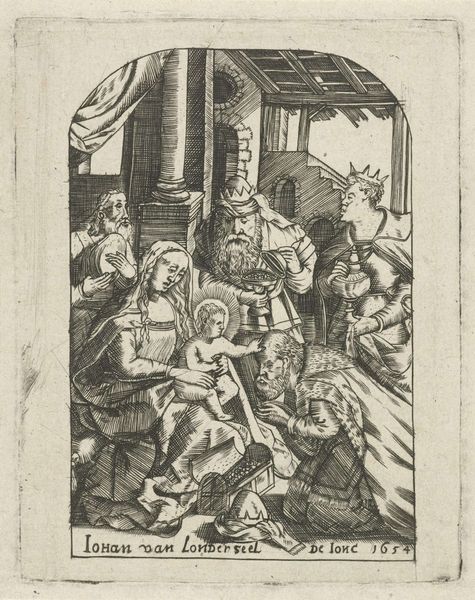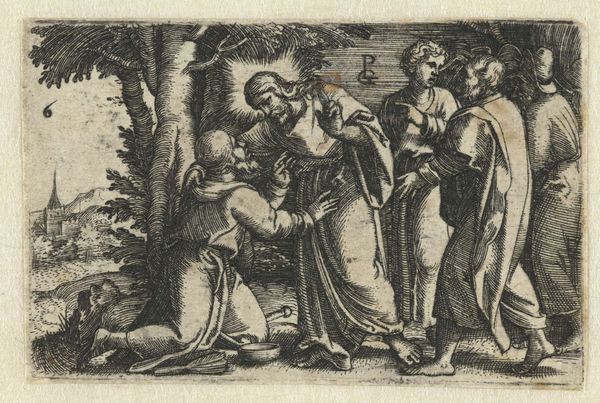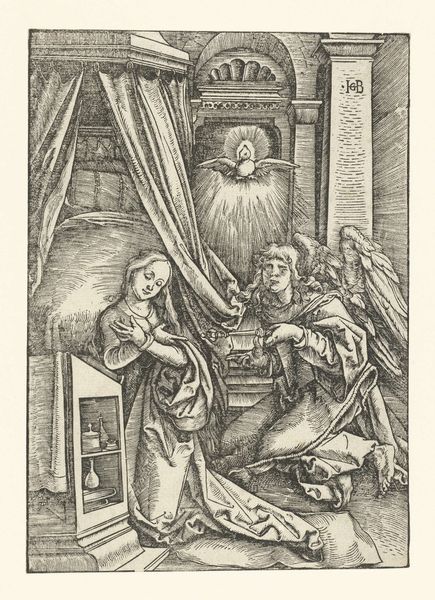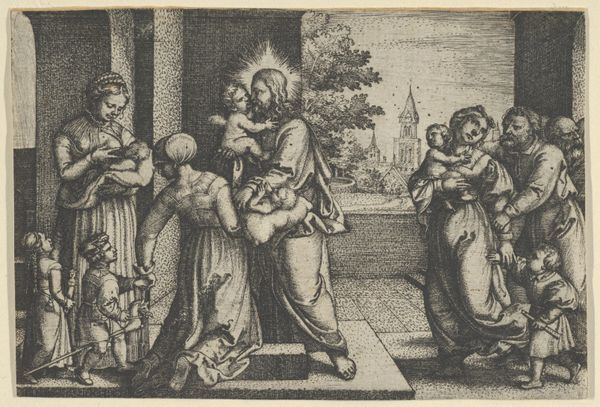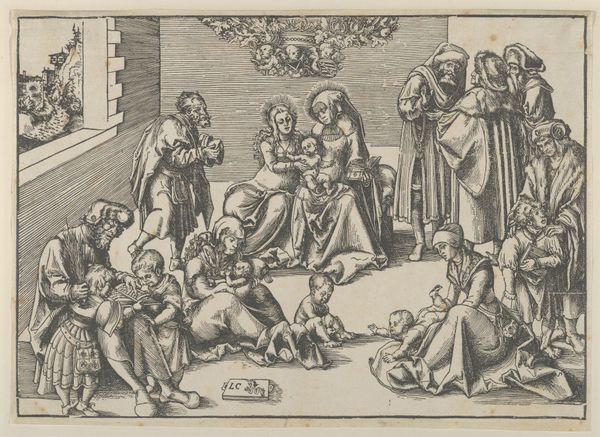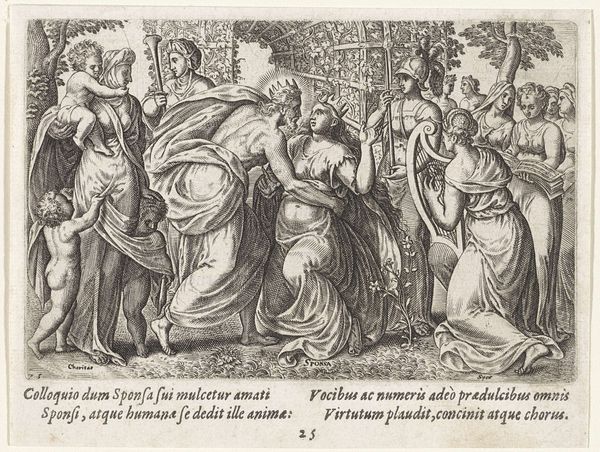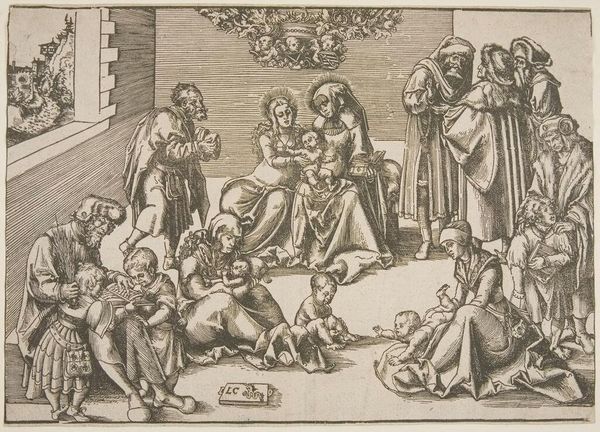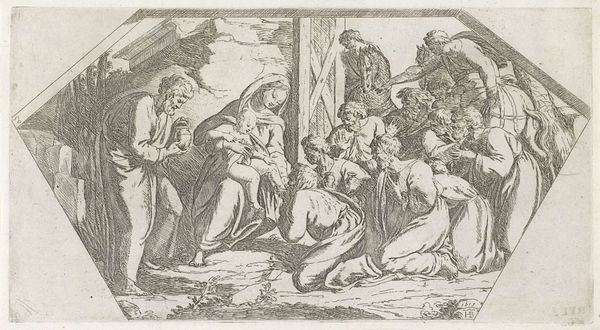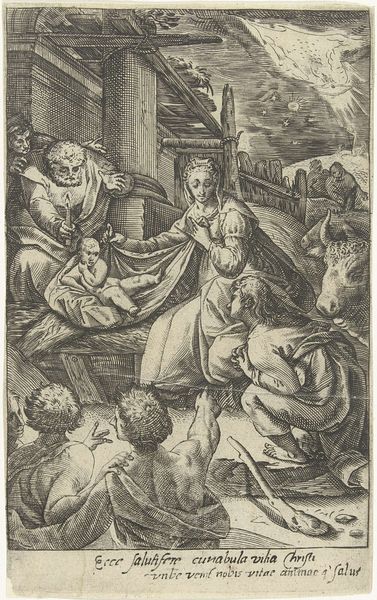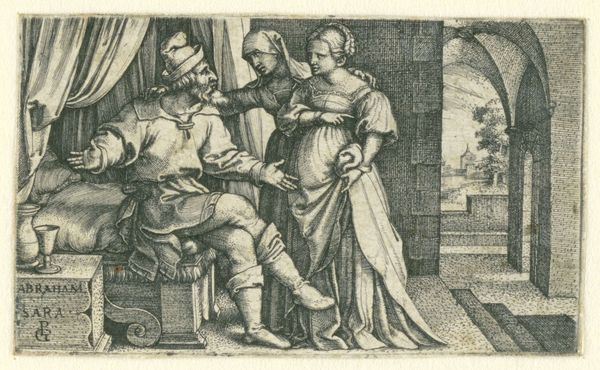
print, engraving
#
medieval
#
narrative-art
# print
#
figuration
#
11_renaissance
#
line
#
history-painting
#
northern-renaissance
#
engraving
Dimensions: height 39 mm, width 60 mm
Copyright: Rijks Museum: Open Domain
Editor: Here we have Georg Pencz's "Doubting Thomas" made around 1534-1535, an engraving held here at the Rijksmuseum. It's such a detailed print; I'm really drawn to the almost tactile quality of the lines used to depict the figures. How do you see this piece, particularly considering its production? Curator: Well, as a materialist, I’m interested in how the means of production here shaped the message. Engraving, as a repeatable process, democratizes images. Consider, how does that impact the accessibility of this religious scene and who could engage with the ideas it represents? Editor: That's interesting. So, the very act of creating a print makes it more accessible. It also appears incredibly time-consuming. Is that reflected in the value or prestige afforded to the work and those who acquired it? Curator: Exactly. And think about the skill required, the labor involved in each line etched onto the plate. This print blurs the lines between "high art" and "craft." The material, the ink, the paper – all became vehicles for spreading not just religious narratives but also, potentially, new social or political viewpoints, accessible due to its affordability as compared to say a painting. Did the production process allow Pencz to express his personal interpretations or commentary? Editor: Perhaps by controlling distribution? So it's not just about faith, it is also about labour, about production and the access to imagery. Something that really prompts considering how this reflects on social structures then and now! Curator: Precisely. The accessibility afforded by the materials used, challenging established religious interpretation and offering a wider engagement with the story, beyond traditional artistic boundaries and creating greater reach than painting. Editor: Thinking about it like that helps me understand art history with present cultural issues too. Thank you!
Comments
No comments
Be the first to comment and join the conversation on the ultimate creative platform.
